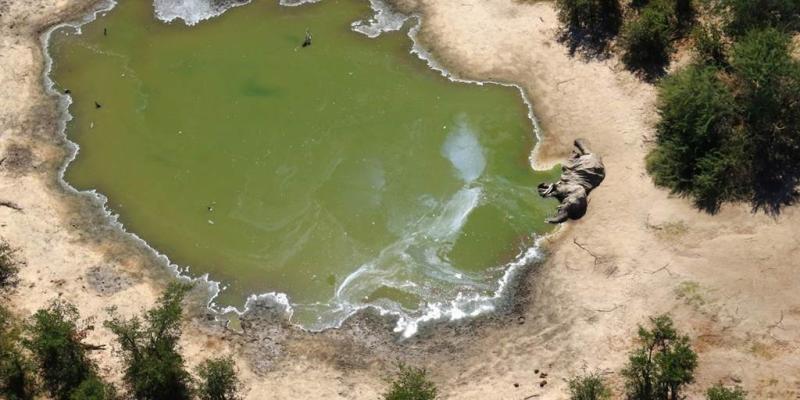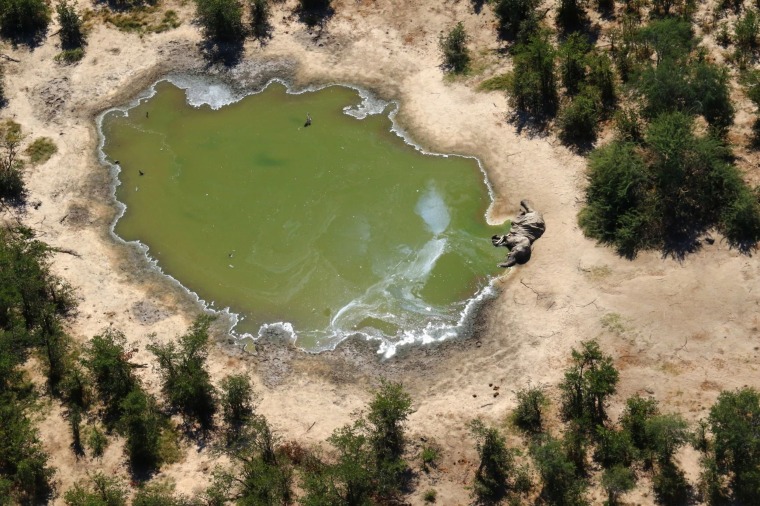Toxic algae to blame for over 300 elephant deaths, Botswana officials say
Category: News & Politics
Via: perrie-halpern • 4 years ago • 8 commentsBy: Reuters and Linda Givetash



GABORONE — The deaths of hundreds of elephants in Botswana this year which had baffled and alarmed conservationists were caused by toxins from algae, officials said on Monday.
Cyril Taolo, deputy director of the Department of Wildlife and National Parks, told a news conference that the number of dead elephants had risen to 330, from 281 last reported in July.
The carcass of one of the many elephants which have died mysteriously in the Okavango Delta in Botswana. National Park Rescue / AFP - Getty Images file
Laboratory test results suggest toxins produced by cyanobacteria — also called blue-green algae — in water are to blame, officials announced.
The elephant carcasses that first detected in May were found in the Okavango Delta, a wetland near the Namibian border.
The department's principal veterinary officer Mmadi Reuben told the same conference that there were, however, still many unanswered questions.
"Our latest tests have detected cyanobacterial neurotoxins to be the cause of deaths. These are bacteria found in water," Reuben said.
"However we have many questions still to be answered such as why the elephants only (died) and why that area only. We have a number of hypotheses we are investigating."
In neighboring Zimbabwe, more than 20 elephant carcasses were discovered near the country's biggest game park and authorities suspect they succumbed to a bacterial infection.
Africa's overall elephant population is declining due to poaching but Botswana, home to almost a third of the continent's elephants, has seen numbers grow to around 130,000.
Reuters Linda Givetash
Linda Givetash
Linda Givetash is a London-based producer for NBC News.









Blue-green algae is highly toxic. Lakes throughout the US are being affected by it, including two of the Great Lakes. The smell alone is horrible.
This is true. Couldn't tell you how many times we receive warning regarding fishing and / or swimming in Lake Erie (that's the one I'm closest to) and the Detroit River.
Damn sad that this is taking place. I watched it basically close Clear Lake CA. one of the premier bass fishing lakes in the US.
It is sad. It's been going on in Lake Erie for a long time.
My husband loves my little bit of extra "fluff"... keeps his skinny ass warm at night.